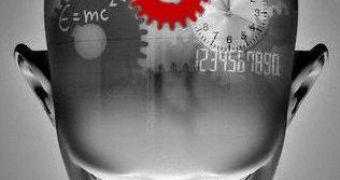As brain damage continues to evolve for several months after a traumatic brain injury – TBI, a new research on the matter, carried out by the University of Melbourne, Australia, revealed a possible target for treatments that could improve brain trauma.
Professor Terry O'Brien, Head of the University of Melbourne's Department of Medicine at the Royal Melbourne Hospital and a senior author on the paper, along with his team, used the latest imaging techniques – positron emission tomography (PET) along with magnetic resonance imaging (MRI), on animal models, for better understanding what's going on after a TBI.
The study revealed many long-term functional and structural changes, like a decrease in brain functioning in certain brain areas, and the hippocampus, the brain structure responsible for memory and emotions, seems to be the key to all this.
Professor O'Brien said the results provided new insights into the progressive brain changes following injury, and also a platform for testing new therapies and their potential biological effectiveness, before starting any kind of clinical trials.
“Our discovery could also be applicable to the study of other neurological diseases, such as stroke, dementia, multiple sclerosis brain infections and epilepsy, which are associated with long-term progressive degenerative changes in the brain,” he added.
“Patients who suffer brain injury commonly experience long-term neurological and psychiatric problems, including memory and thinking difficulties, anxiety and depression, and epilepsy, [and] currently there are no effective interventions to reduce the incidence or severity of these problems.
“We have demonstrated that changes in brain structure and function after traumatic brain injury are dynamic and continue to progress and evolve for many months.
“This opens up a window of opportunity to give treatments to halt this damage, and therefore reduce the long term neurological and psychiatric complications that many patients experience,” the Professor said.
Nearly 400,000 Australians have a disability caused by a traumatic brain injury, with cognitive, psychiatric and epileptic issues as the most common symptoms, and TBI is a major cause of death and disability in children and young adults around the world.
The main cause of this kind of trauma is motor vehicle accidents, with other causes including falls, sports injuries and violent crime.
People affected by a TBI suffer from cognitive disabilities – like disorders in attention, memory, learning and executive functioning, psychiatric and behavioral problems – such as depression, anxiety, aggression, agitation and social inappropriateness, and epilepsy.
This study was funded by the Victorian Neurotrauma Initiative and it is published in the latest issue of The Journal of Nuclear Medicine (JNM).

 14 DAY TRIAL //
14 DAY TRIAL //